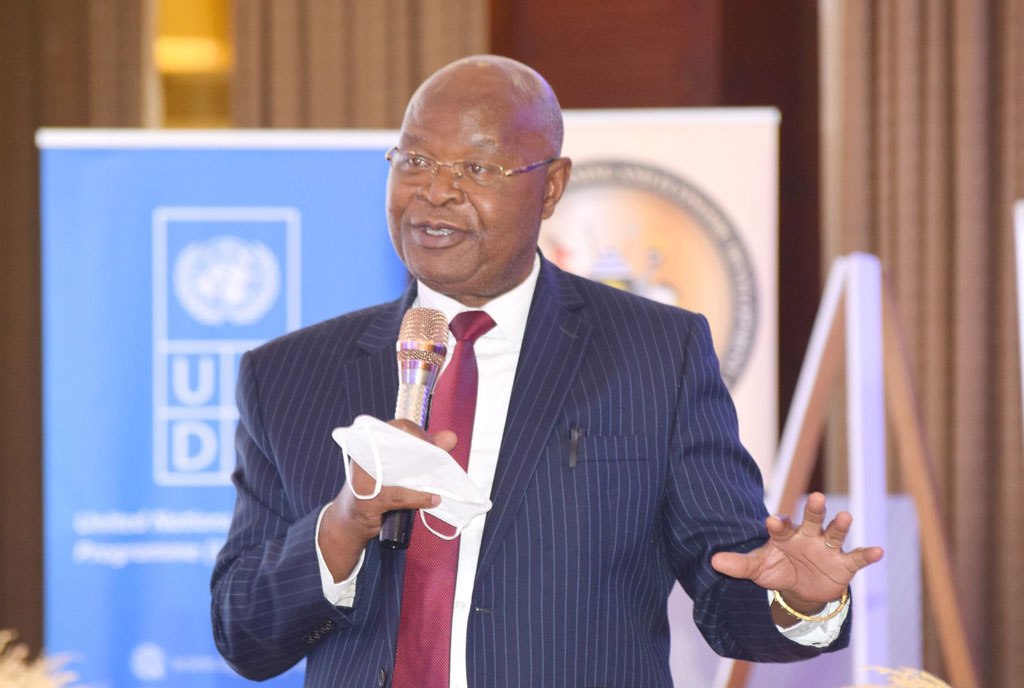EC registers 2.5 million new voters for 2021 polls

Voters take part in an election in Kampala in 2016. PHOTO BY ABUBAKER LUBOWA
The number of eligible voters for the 2021 polls has increased from 15.2 million in 2016 to 17.7 million this year, registering an increment of 2.5 million new voters, the Electoral Commission (EC) has announced.
“This growth has been as a result of more sensitisation, mass engagement and the additional number of voting areas, constituencies and districts,” Justice Simon Byabakama, the EC chairperson, said yesterday in Kampala.
Justice Byabakama made the remarks after flagging off a team of about 165,000 officials who are scheduled to oversee the display exercise of the national voters’ register and registers for special interest groups.
The additional number of fresh voters is higher than the 1.3 million people registered in the 2011 election.
The electoral body had projected to register 19.4m new voters in the forthcoming elections.
Explaining why they failed to hit the target, Justice Byabakama said: “We faced a number of difficulties during the voters’ register update such as heavy rain, landslides in Bududa [District] and breakdown of machines, among other hindrances,” he said.
EC officials also said the number of registered voters reduced during the voter display exercise because some citizens could not defend their discrepancies in their particulars.
Justice Byabakama said this was the last call for voters to verify their particulars.
“During this exercise, one will have to check on the national register if the photos and particulars displayed on the register match with their identities,” he said.
“They will also have to confirm if their request for a transfer from one polling station to another is well captured. You will not be able to vote if the information captured in the register does not tally with what is on your national ID,” he added.
According to EC programme released yesterday, the display of the national voters’ register and register for the special interest group will take place between February 19 to March 10 and February 10 to February 28, respectively.
“In case of special interest group, the voters will be able to verify the date of birth for the youth between 18 and 30 years as well as older persons of 60 years and above,” Justice Byabakama said.
Mr Sam Rwakoojo, the EC secretary, said there is a budget for the programme, adding that appointed officials who will oversee the process had already been paid and the necessary equipment for the activity already acquired. Mr Crispin Kaheru, the former coordinator of the Citizen Coalition for Electoral Democracy in Uganda (CCEDDU), said the process will weed out ineligible voters.
He urged civil society, government, private sector and politicians to rally people for the exercise.
Mr Kaheru also said the drop in target of voters could have been because of the students who were not able to register for lack of their National Identification Numbers.
“There are eligible voters who were turned away from the registration centres during the update exercise but there are also those who were not of the voting age (18 years and above) at the point when EC stopped updating the register in December 2018, and yet they will be 18 years of age at the time of the election,” he said.
On the increment of voter numbers, Mr Apollo Kantinti, the former Kyadondo East MP, said: “There should have been more voter education to compel people to participate in the exercise. Some people failed to go to register because EC officials left the centres very early and the time was not enough.”
Mr Rogers Mulindwa, the NRM secretariat spokesperson, said: “The biggest problem with our people is that they do not take these exercises seriously.”



